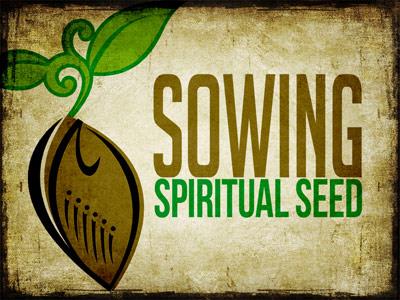-
The Parable Of The Sower, Again!
Contributed by Joshua Blackmon on Nov 3, 2025 (message contributor)
Summary: Sermon based on Jesus's Parable of the Sower in the Gospel of Matthew.
Good morning, Church. Let’s pray.
(Prayer for open hearts and understanding.)
Today, we’re turning to one of Jesus’s most familiar and foundational parables—The Parable of the Sower. In this passage, Jesus teaches us how the Word of God takes root in human hearts, and why it sometimes doesn’t.
Our theme this morning is simple but vital: Hearing the Word is not the same as understanding it. Only when the Word moves from our heads to our hearts—from information to transformation—does it bear fruit.
We’ll look at three types of ground that failed to receive the Word—and then we’ll end with the kind of heart that does.
Matthew tells us that “Jesus went out of the house and sat by the sea.” Every word in Scripture means something.
The house represents what is established—the house of Israel, the people who had received the Law and the promises. The sea in Scripture often symbolizes the nations—the world in its chaos and potential (Daniel 7:2; Isaiah 27:1; Genesis 1:2).
So when Jesus leaves the house and sits by the sea, He’s making a statement: He’s moving from the old covenant household of Israel toward the whole world—toward us.
And notice His posture. He sits—the position of a teacher and a king. He’s not tossed by the waves; He reigns above them. Even when the seas rage, He remains seated in authority.
From that place, the Lord begins to teach. He tells of a Sower who scatters seed everywhere—generously, abundantly, almost recklessly. God is not stingy with His Word! He sows it far and wide because His desire is that whosoever will may come.
Point 1: The Seed on the Path—Lack of Understanding
Matthew 13:18–19 says, “When anyone hears the word about the kingdom and doesn’t understand it, the evil one comes and snatches away what was sown in his heart.”
The first obstacle to fruitfulness is a lack of understanding. The Word is heard—but not grasped. It stays on the surface.
In Jesus’s day, the religious leaders had centuries of Scripture and prophecy pointing to Him, yet many didn’t recognize Him when He came. They had information, but no illumination. That’s why Paul said, “The law was our schoolmaster to bring us to Christ.” There are some fundamentals of faith that prepare the soil of our hearts for understanding.
Today, we live in an age of religious openness but spiritual ignorance. People know slogans about faith, but not Scripture. We must be careful not to become so “tolerant” that we lose conviction. Jesus said, “I am the way, the truth, and the life. No one comes to the Father except through Me.”
That’s why we study together—in Sunday School, in Bible Study, in daily reading—not to fill our heads with facts, but to open our hearts to truth. James tells us to pray for wisdom—and God gives generously.
Thomas Aquinas, one of the church’s greatest theologians, spent his life studying God. But near the end of his life, during Mass, he had a vision of Christ’s glory so powerful that he stopped writing altogether. When his assistant urged him to continue, he said, “I can write no more. All that I have written seems to me like straw compared with what I have seen.”
His knowledge led him to encounter. That’s what Jesus wants for us—not just to know about Him, but to know Him.
Understanding isn’t just mental—it’s spiritual. When we lack understanding, the enemy can steal the Word from our hearts. But when we pray for understanding, it becomes a fence around our hearts that keeps the enemy out.
Point 2: The Seed on Rocky Ground—Lack of Depth
Matthew 13:20–21 says, “The one sown on rocky ground—this is one who hears the word and immediately receives it with joy. But he has no root and is short-lived.”
These are the people who receive the Word with excitement, but not endurance. They start strong, but fade when trouble comes.
Faith without discipline is like a plant without roots—it may look alive for a moment, but the heat of life will wither it.
That’s why we pray daily, read the Word, and gather in worship. These are not empty rituals. They are rhythms of grace that keep our hearts soft and our roots deep. We cannot grow fruit without staying connected to the Vine.
Point 3: The Seed Among Thorns—Lack of Focus
Matthew 13:22 says, “Now the one sown among the thorns—this is one who hears the word, but the worries of this age and the deceitfulness of wealth choke the word, and it becomes unfruitful.”
Here, the problem isn’t ignorance or shallowness—it’s distraction.
Jesus names two thorns:
The worries of this life—anxiety about what might happen.
The deceitfulness of riches—believing money or success can secure us.
Worry says, “God can’t handle this.” Wealth says, “I don’t need God to handle this.” Both choke the Word.

 Sermon Central
Sermon Central



